46th Legislative District
Not in 46th Legislative District? Find your state's guide.
Return Ballots By August 5
Welcome to the Fuse Progressive Voters Guide to the 2025 Primary election! Since 2008, we've compiled information about candidates and ballot measures that allows you to make informed decisions about the races on your ballot, based on your values. You can learn about our partners and decision-making process here. We will continue to add additional recommendations until voting begins on July 16.
King County Ballot Measures
The King County Parks Levy is up for renewal this year. The levy renewal is designed to maintain, enhance, and grow the county's parks and connectivity. King County maintains 220 parks that include 275 miles of trails and 32,000 acres of open space. Some of the services that will benefit from this levy include pools and splash parks, ballfields and sport courts, climate resilience efforts, and much more.
The levy renewal rate is $0.23 per $1,000 of assessed property value. For the owner of a median-valued home of $844,000, the levy renewal will cost $16.38 per month.
All children in King County deserve fun and safe places to play, and preserving our open spaces now will help ensure clean air and water for future generations. Vote YES to renew the King County Parks Levy for continued maintenance of our parks and recreation services.
The King County Parks Levy is up for renewal this year. The levy renewal is designed to maintain, enhance, and grow the county's parks and connectivity. King County maintains 220 parks that include 275 miles of trails and 32,000 acres of open space. Some of the services that will benefit from this levy include pools and splash parks, ballfields and sport courts, climate resilience efforts, and much more.
The levy renewal rate is $0.23 per $1,000 of assessed property value. For the owner of a median-valued home of $844,000, the levy renewal will cost $16.38 per month.
All children in King County deserve fun and safe places to play, and preserving our open spaces now will help ensure clean air and water for future generations. Vote YES to renew the King County Parks Levy for continued maintenance of our parks and recreation services.
King County
Balducci offers extensive, distinguished experience in making government work well for all of us across a range of issues, as well as a passion for solving transportation problems. Zahilay has an impressive track record of fighting for racial and social justice. He has supported efforts to make government more inclusive and a stronger tool for supporting upward mobility and opportunities for all. Read the full recommendations below to find the candidate who is best aligned with your values and priorities.
King County Councilmember Claudia Balducci has served District 6 (Bellevue and East King County) since 2015. She began her career as a public interest lawyer fighting for women and LGBTQ+ people. She was a neighborhood organizer who went on to serve on the Bellevue City Council, including for a term as mayor. Balducci has served as chair of the county council and serves as vice chair of the Sound Transit Board of Directors, where she successfully advocated for an early opening of the "starter line" in East King County.
In her nearly two decades of public service, Balducci has prioritized progressive solutions to the issues facing our region, including improving transportation options, promoting affordable housing, enhancing community safety, addressing climate action, and supporting arts and culture. Her track record is strong in all of these areas, including an arts levy to invest in science, heritage, arts, and cultural organizations, as well as legislation to keep “forever chemicals” out of our local environment. She was a tenacious advocate for the East Link light rail and the 10-station, 14-mile expansion plan slated for completion in early 2026.
Balducci is running for the executive position with a vision of an inclusive, vibrant, and climate-friendly county where all residents can thrive. She emphasizes her track record of effective leadership at the city and county levels that has delivered results for her communities. As a bus and bike commuter, Balducci is an avid supporter of expanding transit options, particularly light rail and bus routes. Additionally, she is an advocate for transit-oriented housing as a means of improving affordability, as well as cutting red tape to expedite the construction of badly needed housing in our region. Furthermore, she outlined thoughtful plans to reduce gun violence, expand mental health and addiction treatment services, and youth prevention programs.
King County Councilmember Claudia Balducci has served District 6 (Bellevue and East King County) since 2015. She began her career as a public interest lawyer fighting for women and LGBTQ+ people. She was a neighborhood organizer who went on to serve on the Bellevue City Council, including for a term as mayor. Balducci has served as chair of the county council and serves as vice chair of the Sound Transit Board of Directors, where she successfully advocated for an early opening of the "starter line" in East King County.
In her nearly two decades of public service, Balducci has prioritized progressive solutions to the issues facing our region, including improving transportation options, promoting affordable housing, enhancing community safety, addressing climate action, and supporting arts and culture. Her track record is strong in all of these areas, including an arts levy to invest in science, heritage, arts, and cultural organizations, as well as legislation to keep “forever chemicals” out of our local environment. She was a tenacious advocate for the East Link light rail and the 10-station, 14-mile expansion plan slated for completion in early 2026.
Balducci is running for the executive position with a vision of an inclusive, vibrant, and climate-friendly county where all residents can thrive. She emphasizes her track record of effective leadership at the city and county levels that has delivered results for her communities. As a bus and bike commuter, Balducci is an avid supporter of expanding transit options, particularly light rail and bus routes. Additionally, she is an advocate for transit-oriented housing as a means of improving affordability, as well as cutting red tape to expedite the construction of badly needed housing in our region. Furthermore, she outlined thoughtful plans to reduce gun violence, expand mental health and addiction treatment services, and youth prevention programs.
King County Council President Girmay Zahilay has represented District 2 (Central and South Seattle) since his first election in 2019. He is an attorney with experience in both the corporate and public sectors. Zahilay also founded Rising Leaders, a nonprofit that uplifts underserved middle school students to reach their full potential. Born in a refugee settlement in Sudan and raised in Seattle’s public housing, he made his way through Stanford University to serve in the Obama administration.
On the county council, Zahilay has focused on pressing issues such as community safety, the cost of living, and making investments in local public services. His accomplishments demonstrate a comprehensive and progressive approach to enhancing the quality of life for all county residents. Zahilay led the Food Bank Motion to bring greater food security and affordability to our region, helped efforts to transform Skyway, including greater public transit coverage, and worked to establish five crisis care centers that help our neighbors struggling with addiction and mental illness.
Zahilay's campaign focuses on a wide range of progressive priorities. His own personal experience with homelessness informs his approach to the issue, prioritizing solutions such as investing in additional shelter beds, zoning reforms, rental assistance programs, and youth-oriented programming to prevent homelessness. He is also a strong supporter of not only protecting but expanding access to reproductive healthcare, including gender-affirming care. Some of his other priorities include public safety, gun violence prevention, and more. Zahilay's platform is carefully and thoroughly constructed, with well-researched progressive solutions.
Zahilay is a great choice if you're looking for new leadership in King County that will prioritize improving the safety and quality of life for all residents.
King County Council President Girmay Zahilay has represented District 2 (Central and South Seattle) since his first election in 2019. He is an attorney with experience in both the corporate and public sectors. Zahilay also founded Rising Leaders, a nonprofit that uplifts underserved middle school students to reach their full potential. Born in a refugee settlement in Sudan and raised in Seattle’s public housing, he made his way through Stanford University to serve in the Obama administration.
On the county council, Zahilay has focused on pressing issues such as community safety, the cost of living, and making investments in local public services. His accomplishments demonstrate a comprehensive and progressive approach to enhancing the quality of life for all county residents. Zahilay led the Food Bank Motion to bring greater food security and affordability to our region, helped efforts to transform Skyway, including greater public transit coverage, and worked to establish five crisis care centers that help our neighbors struggling with addiction and mental illness.
Zahilay's campaign focuses on a wide range of progressive priorities. His own personal experience with homelessness informs his approach to the issue, prioritizing solutions such as investing in additional shelter beds, zoning reforms, rental assistance programs, and youth-oriented programming to prevent homelessness. He is also a strong supporter of not only protecting but expanding access to reproductive healthcare, including gender-affirming care. Some of his other priorities include public safety, gun violence prevention, and more. Zahilay's platform is carefully and thoroughly constructed, with well-researched progressive solutions.
Zahilay is a great choice if you're looking for new leadership in King County that will prioritize improving the safety and quality of life for all residents.
Other Candidates
John Wilson, the current King County Assessor, is running for King County Executive. During his campaign, Wilson stated that he would fight for "safe and thriving communities," citing his experience as King County Assessor.
In 2025, Wilson was accused of stalking and harassment by a former domestic partner. This was an alarming and serious allegation, which led to the current King County Council calling for Wilson's resignation. He continues to deny the allegations and remains firm in his campaign. John Wilson is not fit to be King County Executive.
Amiya Ingram is also running for King County Executive. Ingram has worn many hats professionally, from serving as a government military researcher to founding her own athleisure brand. While Ingram's campaign includes some progressive ideas, it also features other proposals that lean more moderate or conservative. She is a proponent of establishing more housing shelters that offer wrap-around services to address the housing crisis and help those struggling with addiction.
Rebecca Williamson is also running for King County Executive. Williamson's campaign website is linked to The Militant, which is a weekly socialist newsletter. As of late June, they do not have a detailed campaign website available, and their platform is unknown.
Bill Hirt is running for King County Executive. Hirt has run for various offices around Washington state, primarily to criticize light rail. Bill Hirt is not a serious candidate for King County Executive.
Don L. Rivers is the final candidate running for King County Executive. While he has a campaign website, it appears to be down as of mid-May, making his platform unknown. We will continue to monitor this race for updates.
John Wilson, the current King County Assessor, is running for King County Executive. During his campaign, Wilson stated that he would fight for "safe and thriving communities," citing his experience as King County Assessor.
In 2025, Wilson was accused of stalking and harassment by a former domestic partner. This was an alarming and serious allegation, which led to the current King County Council calling for Wilson's resignation. He continues to deny the allegations and remains firm in his campaign. John Wilson is not fit to be King County Executive.
Amiya Ingram is also running for King County Executive. Ingram has worn many hats professionally, from serving as a government military researcher to founding her own athleisure brand. While Ingram's campaign includes some progressive ideas, it also features other proposals that lean more moderate or conservative. She is a proponent of establishing more housing shelters that offer wrap-around services to address the housing crisis and help those struggling with addiction.
Rebecca Williamson is also running for King County Executive. Williamson's campaign website is linked to The Militant, which is a weekly socialist newsletter. As of late June, they do not have a detailed campaign website available, and their platform is unknown.
Bill Hirt is running for King County Executive. Hirt has run for various offices around Washington state, primarily to criticize light rail. Bill Hirt is not a serious candidate for King County Executive.
Don L. Rivers is the final candidate running for King County Executive. While he has a campaign website, it appears to be down as of mid-May, making his platform unknown. We will continue to monitor this race for updates.
Seattle Mayor
Depending on where you live, you may have the following city races on your ballot.
Katie Wilson is running for Mayor of Seattle on a bold progressive platform. Wilson is the general secretary for the Transit Riders Union, which advocates for public transit, affordable housing, and more. She regularly contributes to The Stranger, The Urbanist, and other local progressive publications. She is very active organizing in the community, having helped create the ORCA LIFT program and the Seattle Youth ORCA Program, as well as serving on the Seattle Revenue Stabilization Workgroup, which Mayor Harrell disbanded. She is a coalition builder and renter with strong community relationships and a proven track record of advocacy.
Like Wilson’s career in organizing, her campaign for mayor is exceptionally progressive in vision, values, and support. She is advocating for making the wealthy and corporations pay what they owe so that our communities can afford housing and health care. During our interview, she advocated for policies that would ensure clean air and water for all, protect civil liberties, expand access to substance abuse treatment, and support diverse arts and cultural offerings.
Wilson is an advocate for Seattle’s new social housing policy, and she supports even more diversity in affordable housing types as well as increased shelter capacity and wraparound services. She also shared support for scaling up the LEAD diversion program, safeguarding the rights of immigrants and other targets of Trump’s federal attacks, investing public funding into local news, and more. As a renter, Wilson understands the challenges many Seattleites face with the rapidly increasing cost of housing.
Wilson’s critics question whether she has the experience and ability to make the jump from being an extremely progressive campaigner running a small non-profit to managing the tough political and practical realities of governing a major city.
Wilson is a good choice for mayor if you're looking for a progressive organizer with policy experience and a strong vision for challenging existing approaches to Seattle's problems.
Katie Wilson is running for Mayor of Seattle on a bold progressive platform. Wilson is the general secretary for the Transit Riders Union, which advocates for public transit, affordable housing, and more. She regularly contributes to The Stranger, The Urbanist, and other local progressive publications. She is very active organizing in the community, having helped create the ORCA LIFT program and the Seattle Youth ORCA Program, as well as serving on the Seattle Revenue Stabilization Workgroup, which Mayor Harrell disbanded. She is a coalition builder and renter with strong community relationships and a proven track record of advocacy.
Like Wilson’s career in organizing, her campaign for mayor is exceptionally progressive in vision, values, and support. She is advocating for making the wealthy and corporations pay what they owe so that our communities can afford housing and health care. During our interview, she advocated for policies that would ensure clean air and water for all, protect civil liberties, expand access to substance abuse treatment, and support diverse arts and cultural offerings.
Wilson is an advocate for Seattle’s new social housing policy, and she supports even more diversity in affordable housing types as well as increased shelter capacity and wraparound services. She also shared support for scaling up the LEAD diversion program, safeguarding the rights of immigrants and other targets of Trump’s federal attacks, investing public funding into local news, and more. As a renter, Wilson understands the challenges many Seattleites face with the rapidly increasing cost of housing.
Wilson’s critics question whether she has the experience and ability to make the jump from being an extremely progressive campaigner running a small non-profit to managing the tough political and practical realities of governing a major city.
Wilson is a good choice for mayor if you're looking for a progressive organizer with policy experience and a strong vision for challenging existing approaches to Seattle's problems.
Seattle Mayor Bruce Harrell is running for a second term. Harrell is an attorney who has experience representing victims of workplace discrimination and minority entrepreneurs. He was first elected to the city council in 2007 and served three terms. Harrell won his mayoral campaign in 2021 as a more centrist Democratic candidate focused on bridging relationships between community members and local government.
In office, Harrell has pursued an agenda focused on safety, economic opportunity, and a high quality of life. His supporters praise his steady and balanced support for Seattle's post-COVID economic recovery in the city’s struggling downtown core. While he hasn’t been an outspoken advocate of police reform, Harrell's supporters point to his launch of the CARE department. This alternative public safety branch has responded to 1,400 crisis calls, diverting work from law enforcement and providing a more appropriate behavioral health response.
Harrell won praise from a coalition of unions representing city workers for negotiating a new contract that respects their work and helps keep up with the cost of living. He also earned the endorsements of some transportation advocates due to his support for transportation choices in the largest transportation levy in the city's history. Harrell’s forward-looking platform emphasizes his continued support for the revitalization of the downtown core, as well as protecting Seattle residents from the Trump administration.
Harrell has also faced criticism from some progressives in Seattle on many issues. One of the most significant challenges facing Seattle is the persistently high cost of living, particularly the cost of housing. The Harrell administration has a unique opportunity to reshape Seattle's housing market through the 20-year comprehensive plan, which sets the city's strategy for building and growth. While the Mayor’s office has proposed a substantial expansion of the city’s housing capacity, they also scaled back growth opportunities from an early proposal last year. In recent months, following pushback from some vocal anti-density city council members, Harrell's office has further reduced the areas where increased growth is allowed. Housing advocates point to this backtracking as an example of where a clearer vision and more decisive leadership from the mayor's office were needed to pass stronger legislation. If this weakened plan is adopted, Seattle will miss out on a critical opportunity to support badly needed housing, which will make it even more difficult for teachers, nurses, and artists to live in our city.
Harrell's critics have also expressed concern about the workplace environment in his office. His former Senior Deputy Mayor and niece, Monisha Harrell, described her uncle's office as hostile, sexist, and a "dog-eat-dog environment where white male advisors vied for power and influence." According to KUOW, six other women, with close ties to the mayor's administration, echoed Monisha's description.
Harrell recently proposed addressing the city’s revenue shortfalls by substantially increasing business taxes on larger businesses. He significantly increased the exemption for small businesses and used the proceeds to fund programs that support housing stability, homeless services, food security, and small business sustainability.
Harrell is not a dynamic progressive leader who will drive major changes, but he is a moderate Democrat who is doing a reasonable job of balancing competing interests and managing major challenges. He is a good choice for voters who want a more centrist and experienced candidate for mayor.
Seattle Mayor Bruce Harrell is running for a second term. Harrell is an attorney who has experience representing victims of workplace discrimination and minority entrepreneurs. He was first elected to the city council in 2007 and served three terms. Harrell won his mayoral campaign in 2021 as a more centrist Democratic candidate focused on bridging relationships between community members and local government.
In office, Harrell has pursued an agenda focused on safety, economic opportunity, and a high quality of life. His supporters praise his steady and balanced support for Seattle's post-COVID economic recovery in the city’s struggling downtown core. While he hasn’t been an outspoken advocate of police reform, Harrell's supporters point to his launch of the CARE department. This alternative public safety branch has responded to 1,400 crisis calls, diverting work from law enforcement and providing a more appropriate behavioral health response.
Harrell won praise from a coalition of unions representing city workers for negotiating a new contract that respects their work and helps keep up with the cost of living. He also earned the endorsements of some transportation advocates due to his support for transportation choices in the largest transportation levy in the city's history. Harrell’s forward-looking platform emphasizes his continued support for the revitalization of the downtown core, as well as protecting Seattle residents from the Trump administration.
Harrell has also faced criticism from some progressives in Seattle on many issues. One of the most significant challenges facing Seattle is the persistently high cost of living, particularly the cost of housing. The Harrell administration has a unique opportunity to reshape Seattle's housing market through the 20-year comprehensive plan, which sets the city's strategy for building and growth. While the Mayor’s office has proposed a substantial expansion of the city’s housing capacity, they also scaled back growth opportunities from an early proposal last year. In recent months, following pushback from some vocal anti-density city council members, Harrell's office has further reduced the areas where increased growth is allowed. Housing advocates point to this backtracking as an example of where a clearer vision and more decisive leadership from the mayor's office were needed to pass stronger legislation. If this weakened plan is adopted, Seattle will miss out on a critical opportunity to support badly needed housing, which will make it even more difficult for teachers, nurses, and artists to live in our city.
Harrell's critics have also expressed concern about the workplace environment in his office. His former Senior Deputy Mayor and niece, Monisha Harrell, described her uncle's office as hostile, sexist, and a "dog-eat-dog environment where white male advisors vied for power and influence." According to KUOW, six other women, with close ties to the mayor's administration, echoed Monisha's description.
Harrell recently proposed addressing the city’s revenue shortfalls by substantially increasing business taxes on larger businesses. He significantly increased the exemption for small businesses and used the proceeds to fund programs that support housing stability, homeless services, food security, and small business sustainability.
Harrell is not a dynamic progressive leader who will drive major changes, but he is a moderate Democrat who is doing a reasonable job of balancing competing interests and managing major challenges. He is a good choice for voters who want a more centrist and experienced candidate for mayor.
Other Progressive Candidates
Ry Armstrong is also challenging Mayor Harrell for the seat. Armstrong works as an actor, union representative, musician, and entrepreneur. They are a trans community leader who wants to be a strong voice for Seattle’s LGBTQ+ community, which has become increasingly put at risk by Trump’s dangerous hate rhetoric. Armstrong is the co-executive director of Sustainable Seattle, a social justice nonprofit focused on an intersectional vision of sustainability. Additionally, Armstrong has served on the Seattle LGBTQ Commission, advising city leadership on LGBTQ+ issues and policy priorities.
Armstrong is a staunch advocate for labor rights, social justice, and a city that works for everyone, regardless of income level. They aim to increase shelter capacity by 1,000 beds within their first 100 days, reduce public transit fares for working families, update land use rules to facilitate the construction of more childcare centers, expand community safety alternatives to militarized policing, safeguard workers’ rights in the Trump era, and more. Their progressive vision for the city is based on the principle that Seattle thrives when everyone can access the basics, such as groceries, rent, and medicine, and have their civil liberties protected by city leadership.
Joe Molloy is running for mayor as an unhoused candidate with a central focus on tackling Seattle’s housing crisis, which he calls a “state of emergency.” Molloy was evicted after losing his job during the pandemic, and he has been living in tent cities since then. He has personally seen how City Hall’s housing policy affects Seattle’s unhoused population, and it has prompted him to run for office to implement different strategies. As a current resident of Tent City 3, Molloy works alongside his neighbors in community encampment administration responsibilities and serves on the board of the nonprofit SHARE, the Seattle Housing and Resource Effort.
Molloy is running to combat the housing crisis with bold and compassionate progressive solutions while destigmatizing the city’s unhoused community. He wants to implement ideas such as a universal basic income pilot program, widespread and accessible healthcare, substance abuse treatment, a nonviolent crisis response program, and other systemic reforms that can raise the basic quality of life for all Seattleites. Much of these policy ideas fall under what he has termed the “Homelessness New Deal,” which envisions a three-step policy process to end the housing crisis, from relief to recovery, and ultimately to reform. Molloy’s lived experience, advocacy background, and community leadership make him an important voice on this issue.
Joe Mallahan, a telecommunications executive and Democrat, is also in this race. Mallahan serves on the board of the King County Sexual Assault Resource Center and has previously run for the office back in a competitive 2009 race. He claims to have leveraged his business background to drive down wireless prices for low-income communities while in his executive roles.
Mallahan has not released a detailed campaign platform as of early July, but says he wants to drive social justice-aligned progress in the city. He supports increasing housing opportunities for more people, addressing sexual assault in our community, developing social housing and tax credits for those struggling, and enhancing transit-oriented housing density, which he believes will also lead to a reduction in carbon emissions for the city. Mallahan also wants to challenge and refuse cooperation with the Trump administration, admonishing ICE as an amoral and unconstitutional agent that he would oppose regardless of municipal budget and personal cost.
Ry Armstrong is also challenging Mayor Harrell for the seat. Armstrong works as an actor, union representative, musician, and entrepreneur. They are a trans community leader who wants to be a strong voice for Seattle’s LGBTQ+ community, which has become increasingly put at risk by Trump’s dangerous hate rhetoric. Armstrong is the co-executive director of Sustainable Seattle, a social justice nonprofit focused on an intersectional vision of sustainability. Additionally, Armstrong has served on the Seattle LGBTQ Commission, advising city leadership on LGBTQ+ issues and policy priorities.
Armstrong is a staunch advocate for labor rights, social justice, and a city that works for everyone, regardless of income level. They aim to increase shelter capacity by 1,000 beds within their first 100 days, reduce public transit fares for working families, update land use rules to facilitate the construction of more childcare centers, expand community safety alternatives to militarized policing, safeguard workers’ rights in the Trump era, and more. Their progressive vision for the city is based on the principle that Seattle thrives when everyone can access the basics, such as groceries, rent, and medicine, and have their civil liberties protected by city leadership.
Joe Molloy is running for mayor as an unhoused candidate with a central focus on tackling Seattle’s housing crisis, which he calls a “state of emergency.” Molloy was evicted after losing his job during the pandemic, and he has been living in tent cities since then. He has personally seen how City Hall’s housing policy affects Seattle’s unhoused population, and it has prompted him to run for office to implement different strategies. As a current resident of Tent City 3, Molloy works alongside his neighbors in community encampment administration responsibilities and serves on the board of the nonprofit SHARE, the Seattle Housing and Resource Effort.
Molloy is running to combat the housing crisis with bold and compassionate progressive solutions while destigmatizing the city’s unhoused community. He wants to implement ideas such as a universal basic income pilot program, widespread and accessible healthcare, substance abuse treatment, a nonviolent crisis response program, and other systemic reforms that can raise the basic quality of life for all Seattleites. Much of these policy ideas fall under what he has termed the “Homelessness New Deal,” which envisions a three-step policy process to end the housing crisis, from relief to recovery, and ultimately to reform. Molloy’s lived experience, advocacy background, and community leadership make him an important voice on this issue.
Joe Mallahan, a telecommunications executive and Democrat, is also in this race. Mallahan serves on the board of the King County Sexual Assault Resource Center and has previously run for the office back in a competitive 2009 race. He claims to have leveraged his business background to drive down wireless prices for low-income communities while in his executive roles.
Mallahan has not released a detailed campaign platform as of early July, but says he wants to drive social justice-aligned progress in the city. He supports increasing housing opportunities for more people, addressing sexual assault in our community, developing social housing and tax credits for those struggling, and enhancing transit-oriented housing density, which he believes will also lead to a reduction in carbon emissions for the city. Mallahan also wants to challenge and refuse cooperation with the Trump administration, admonishing ICE as an amoral and unconstitutional agent that he would oppose regardless of municipal budget and personal cost.
Seattle City Attorney
Depending on where you live, you may have the following city races on your ballot.
Former federal prosecutor Erika Evans is running a progressive campaign for Seattle City Attorney. Evans quit her position as a federal prosecutor earlier this year, after four years of working on hate crimes, drug trafficking, and violent crimes, due to the increasingly dangerous executive orders she saw from the Trump administration. She has a diverse legal background, which also includes work as a pro tem judge for the SeaTac, Tukwila, and Puyallup municipal courts, as well as four years spent in Seattle’s city attorney's office.
Evans’ departure from the federal prosecution position is emblematic of her defining priority in this race: opposing Trump’s undemocratic and unjust policies. In our interview, Evans shared her vision for preparing the city attorney’s office to defend DEI, reproductive health freedoms, and climate protections, even proposing that the office add an entirely new and staffed environmental law section. She is proud of Seattle’s status as a sanctuary city and is unafraid to sue the Trump administration for violations of civil liberties in our community, drawing on her prosecutorial and federal experience.
If elected, Evans would reinstate the Seattle Community Court and expand the employment office to protect against wage theft. In addition, she would prioritize negotiating a new police contract with a greater emphasis on accountability, which is motivated by her own experience of being illegally detained by the police as a law student.
Erika Evans is a fearless and passionate leader who will stand up to attacks from the Trump administration. She would be a strong choice for Seattle City Attorney.
Former federal prosecutor Erika Evans is running a progressive campaign for Seattle City Attorney. Evans quit her position as a federal prosecutor earlier this year, after four years of working on hate crimes, drug trafficking, and violent crimes, due to the increasingly dangerous executive orders she saw from the Trump administration. She has a diverse legal background, which also includes work as a pro tem judge for the SeaTac, Tukwila, and Puyallup municipal courts, as well as four years spent in Seattle’s city attorney's office.
Evans’ departure from the federal prosecution position is emblematic of her defining priority in this race: opposing Trump’s undemocratic and unjust policies. In our interview, Evans shared her vision for preparing the city attorney’s office to defend DEI, reproductive health freedoms, and climate protections, even proposing that the office add an entirely new and staffed environmental law section. She is proud of Seattle’s status as a sanctuary city and is unafraid to sue the Trump administration for violations of civil liberties in our community, drawing on her prosecutorial and federal experience.
If elected, Evans would reinstate the Seattle Community Court and expand the employment office to protect against wage theft. In addition, she would prioritize negotiating a new police contract with a greater emphasis on accountability, which is motivated by her own experience of being illegally detained by the police as a law student.
Erika Evans is a fearless and passionate leader who will stand up to attacks from the Trump administration. She would be a strong choice for Seattle City Attorney.
Public defender Nathan Rouse is running for Seattle City Attorney. Rouse has a long history of involvement in litigation work, encompassing both civil and criminal proceedings. At a Seattle firm where he was an associate, Rouse dedicated his hours to pro bono work, and, more recently, he has served as a public defender representing misdemeanor cases with King County’s Associated Counsel for the Accused Division.
Rouse credits his pro bono and public defense work with showing him how the criminal legal system can make our communities less safe when used to simply put more non-violent people behind bars. In our interview, Rouse emphasized that the prosecution's role should be limited and strategic, including in cases of wage theft and other social protections. His progressive legal lens translates to a campaign vision that includes opposing Trump’s federal overreach and attack on civil liberties, banning algorithmic price-setting for rentals, managing a prosecutorial caseload to most effectively promote community safety, and using civil litigation revenue and department resources effectively for the benefit of the community.
Nathan Rouse is a progressive voice who has dedicated his career to serving his community. While we lean towards Evans, Rouse is also a good choice if you're looking for someone to revamp the priorities of the City Attorney's office.
Public defender Nathan Rouse is running for Seattle City Attorney. Rouse has a long history of involvement in litigation work, encompassing both civil and criminal proceedings. At a Seattle firm where he was an associate, Rouse dedicated his hours to pro bono work, and, more recently, he has served as a public defender representing misdemeanor cases with King County’s Associated Counsel for the Accused Division.
Rouse credits his pro bono and public defense work with showing him how the criminal legal system can make our communities less safe when used to simply put more non-violent people behind bars. In our interview, Rouse emphasized that the prosecution's role should be limited and strategic, including in cases of wage theft and other social protections. His progressive legal lens translates to a campaign vision that includes opposing Trump’s federal overreach and attack on civil liberties, banning algorithmic price-setting for rentals, managing a prosecutorial caseload to most effectively promote community safety, and using civil litigation revenue and department resources effectively for the benefit of the community.
Nathan Rouse is a progressive voice who has dedicated his career to serving his community. While we lean towards Evans, Rouse is also a good choice if you're looking for someone to revamp the priorities of the City Attorney's office.
Progressive local attorney Rory O’Sullivan is also running for Seattle City Attorney. He has had a productive career in policy and law, including a stint working for Congressman Jim McDermott on Capitol Hill, serving as an administrative law judge, leading the University of Washington’s student legal services, and serving as a partner at Washington Employment Benefits Advocates, a private practice firm to represent workers’ benefits which he himself founded. O’Sullivan has also been heavily involved in local politics through his campaign work to secure ranked-choice voting by 2027 and serving on the redistricting committee to rebalance the city’s voting districts.
O’Sullivan is running on a progressive platform focused on fighting Trump’s deportation attempts, building better relationships between the police and the community, reducing recidivism through alternative courts that focus on productive second chances, and pursuing prompt prosecution in cases of DUIs and domestic violence instances. In our interview with him, O’Sullivan stated he is willing to enter arbitration with the police guild in order to fight for community-driven police reform, wants to take on the federal government for undemocratic overreach and failing to honor contracts, and believes that court and incarceration reform can help reduce recidivism and keep our city safer.
Although Rory O'Sullivan is a strong progressive voice who dedicated his career to serving his community, we believe both Evans and Rouse have more relevant professional and lived experience that would allow them to make a bigger impact as Seattle City Attorney.
Progressive local attorney Rory O’Sullivan is also running for Seattle City Attorney. He has had a productive career in policy and law, including a stint working for Congressman Jim McDermott on Capitol Hill, serving as an administrative law judge, leading the University of Washington’s student legal services, and serving as a partner at Washington Employment Benefits Advocates, a private practice firm to represent workers’ benefits which he himself founded. O’Sullivan has also been heavily involved in local politics through his campaign work to secure ranked-choice voting by 2027 and serving on the redistricting committee to rebalance the city’s voting districts.
O’Sullivan is running on a progressive platform focused on fighting Trump’s deportation attempts, building better relationships between the police and the community, reducing recidivism through alternative courts that focus on productive second chances, and pursuing prompt prosecution in cases of DUIs and domestic violence instances. In our interview with him, O’Sullivan stated he is willing to enter arbitration with the police guild in order to fight for community-driven police reform, wants to take on the federal government for undemocratic overreach and failing to honor contracts, and believes that court and incarceration reform can help reduce recidivism and keep our city safer.
Although Rory O'Sullivan is a strong progressive voice who dedicated his career to serving his community, we believe both Evans and Rouse have more relevant professional and lived experience that would allow them to make a bigger impact as Seattle City Attorney.
Other Candidates
Republican incumbent Ann Davison is seeking re-election as Seattle City Attorney. She was first elected city attorney in 2021 and has pursued a conservative agenda in office. Previously, Davis ran for Washington Lieutenant Governor with an anti-Democratic platform, and she spent nearly two decades in private practice as a lawyer.
Davison’s approach to the lead prosecutor role in our city is to further divide us by casting blame on those struggling the most. Rather than investing in services and programs that can uplift our neighbors experiencing homelessness, addiction, or other hard times, she wants to use our criminal legal system to criminalize poverty and rely on our overcrowded prisons as a band-aid solution. In 2023, Davison unilaterally dismantled Seattle's innovative community court, which allowed people accused of some low-level offenses to access services without pleading guilty.
Davison also generated controversy by launching a highly personal campaign against Seattle Municipal Court Judge Pooja Vaddadi. Davison created an internal policy to exclude Vaddadi from all criminal cases, a nearly unprecedented move against a sitting judge elected by the voters. Davison faces a personal bar complaint over the issue, and the ACLU of Washington similarly sued her office seeking to overturn the policy.
Davison's petty and politically conservative agenda continues to hinder Seattle's progress toward making meaningful change. Seattle needs new, progressive leadership as our City Attorney. We recommend Erika Evans or Nathan Rouse for a fresh start that prioritizes equal justice under law.
Republican incumbent Ann Davison is seeking re-election as Seattle City Attorney. She was first elected city attorney in 2021 and has pursued a conservative agenda in office. Previously, Davis ran for Washington Lieutenant Governor with an anti-Democratic platform, and she spent nearly two decades in private practice as a lawyer.
Davison’s approach to the lead prosecutor role in our city is to further divide us by casting blame on those struggling the most. Rather than investing in services and programs that can uplift our neighbors experiencing homelessness, addiction, or other hard times, she wants to use our criminal legal system to criminalize poverty and rely on our overcrowded prisons as a band-aid solution. In 2023, Davison unilaterally dismantled Seattle's innovative community court, which allowed people accused of some low-level offenses to access services without pleading guilty.
Davison also generated controversy by launching a highly personal campaign against Seattle Municipal Court Judge Pooja Vaddadi. Davison created an internal policy to exclude Vaddadi from all criminal cases, a nearly unprecedented move against a sitting judge elected by the voters. Davison faces a personal bar complaint over the issue, and the ACLU of Washington similarly sued her office seeking to overturn the policy.
Davison's petty and politically conservative agenda continues to hinder Seattle's progress toward making meaningful change. Seattle needs new, progressive leadership as our City Attorney. We recommend Erika Evans or Nathan Rouse for a fresh start that prioritizes equal justice under law.
Seattle City Council
Depending on where you live, you may have the following city races on your ballot.
Eddie Lin is a lawyer who would use his experience in the city’s Office of Housing to advocate for more affordable housing and density. Jeanie Chunn is the most progressive of the four, with a long history of activism and advocacy, particularly on behalf of restaurant workers. Jamie Fackler is deeply rooted in the labor movement and has proposed some very ambitious proposals, particularly around taxation. Adonis Ducksworth is deeply connected to the South Seattle community and would put the most focus on safety and transportation.
Read the full descriptions below to find the candidate who is best aligned with your values and priorities for Seattle.
Eddie Lin, a lawyer for the City of Seattle who works primarily representing the Office of Housing, is also running in District 2. Previously in his legal career, Lin worked for a national law firm, clerked for a U.S. District Court judge, and served the Washington Education Association. He was raised by Taiwanese immigrants in the American South, witnessing firsthand how racist practices infiltrate governance.
In this race, Lin has drawn attention to the history of redlining, resource neglect, and employment discrimination in Seattle’s District 2. He supports a housing strategy that embraces density, including market-rate construction alongside affordable and social housing, to account for population growth, including from political and climate refugees. Unfortunately, Lin was a supporter of February’s Proposition 1B, a watered-down alternative to Proposition 1A, which ultimately passed to fund social housing in Seattle. In our interview with Lin, he also mentioned support for diversion programs to keep people out of overcrowded prisons, a gun violence prevention policy, expanding the police force with an eye toward diversity, and increasing pathways to homeownership.
Eddie Lin, a lawyer for the City of Seattle who works primarily representing the Office of Housing, is also running in District 2. Previously in his legal career, Lin worked for a national law firm, clerked for a U.S. District Court judge, and served the Washington Education Association. He was raised by Taiwanese immigrants in the American South, witnessing firsthand how racist practices infiltrate governance.
In this race, Lin has drawn attention to the history of redlining, resource neglect, and employment discrimination in Seattle’s District 2. He supports a housing strategy that embraces density, including market-rate construction alongside affordable and social housing, to account for population growth, including from political and climate refugees. Unfortunately, Lin was a supporter of February’s Proposition 1B, a watered-down alternative to Proposition 1A, which ultimately passed to fund social housing in Seattle. In our interview with Lin, he also mentioned support for diversion programs to keep people out of overcrowded prisons, a gun violence prevention policy, expanding the police force with an eye toward diversity, and increasing pathways to homeownership.
Food access advocate Jeanie Chunn is also seeking the District 2 seat. Chunn’s grandparents, her mother, and Chunn herself have spent their lives working in the restaurant industry. Now, she serves as the co-chair of the Independent Restaurant Coalition, helped co-found the Seattle Restaurant United coalition, and directed High Road Restaurants, promoting a more diverse workforce in the industry. Chunn also served as the former director of community engagement for Northwest Harvest, a nonprofit that brings fresh produce to our community members who need it.
Chunn’s leadership experience is driven by the desire to ensure that members of our community have access to good jobs with fair wages and healthy food. She brings this vision to her campaign for city council, advocating to end the ineffective and uncompassionate sweep of homeless encampments, to reverse exclusionary zones that punish sex workers and people struggling with addiction, to protect workers from wage theft, and to ensure that Seattle’s social housing developer is fully funded. Chunn wants to challenge the conservative rhetoric surrounding street crime and pursue real solutions to make Seattle a better place to live, work, and raise a family.
In our interview, Chunn's commitment to representation and activism was evident. If elected, she would be a steadfast leader who is well-versed in the issues facing her constituents. Chunn provides thoughtful and progressive solutions, making her a great choice for Seattle City Council, District 2.
Food access advocate Jeanie Chunn is also seeking the District 2 seat. Chunn’s grandparents, her mother, and Chunn herself have spent their lives working in the restaurant industry. Now, she serves as the co-chair of the Independent Restaurant Coalition, helped co-found the Seattle Restaurant United coalition, and directed High Road Restaurants, promoting a more diverse workforce in the industry. Chunn also served as the former director of community engagement for Northwest Harvest, a nonprofit that brings fresh produce to our community members who need it.
Chunn’s leadership experience is driven by the desire to ensure that members of our community have access to good jobs with fair wages and healthy food. She brings this vision to her campaign for city council, advocating to end the ineffective and uncompassionate sweep of homeless encampments, to reverse exclusionary zones that punish sex workers and people struggling with addiction, to protect workers from wage theft, and to ensure that Seattle’s social housing developer is fully funded. Chunn wants to challenge the conservative rhetoric surrounding street crime and pursue real solutions to make Seattle a better place to live, work, and raise a family.
In our interview, Chunn's commitment to representation and activism was evident. If elected, she would be a steadfast leader who is well-versed in the issues facing her constituents. Chunn provides thoughtful and progressive solutions, making her a great choice for Seattle City Council, District 2.
Union leader and building inspector Jamie Fackler is running to replace former council member Tammy Morales’ seat with her endorsement. Fackler works for the city’s Department of Construction and Inspections and serves as a steward for PROTEC17, a union of city workers.
Fackler aims to bring a blue-collar perspective to City Hall and advocate for policies that uplift Seattle’s working class. He and his union supported February’s Proposition 1A to create the Social Housing Developer, and if elected, he wants to put even more funding under its umbrella to expand much-needed affordable housing in our city. Fackler supports more funding for services, treatment, and support to tackle the behavioral health and substance abuse issues that affect many residents, rather than attempting to solve the problem through encampment sweeps and criminalization. He holds an optimistic, community-forward vision for our city, embracing growth and density, opposing extremist Trump policies. He has proposed some significant policy changes, including a temporary 3% increase in the Jumpstart tax to backfill federal budget cuts.
Fackler is a good choice if you want a candidate who will steadfastly support working people and be an outspoken progressive voice on the council.
Union leader and building inspector Jamie Fackler is running to replace former council member Tammy Morales’ seat with her endorsement. Fackler works for the city’s Department of Construction and Inspections and serves as a steward for PROTEC17, a union of city workers.
Fackler aims to bring a blue-collar perspective to City Hall and advocate for policies that uplift Seattle’s working class. He and his union supported February’s Proposition 1A to create the Social Housing Developer, and if elected, he wants to put even more funding under its umbrella to expand much-needed affordable housing in our city. Fackler supports more funding for services, treatment, and support to tackle the behavioral health and substance abuse issues that affect many residents, rather than attempting to solve the problem through encampment sweeps and criminalization. He holds an optimistic, community-forward vision for our city, embracing growth and density, opposing extremist Trump policies. He has proposed some significant policy changes, including a temporary 3% increase in the Jumpstart tax to backfill federal budget cuts.
Fackler is a good choice if you want a candidate who will steadfastly support working people and be an outspoken progressive voice on the council.
Adonis Ducksworth is Mayor Bruce Harrell’s transportation policy advisor and was a finalist to fill Councilmember Tammy Morales’ District 2 vacancy during the appointment process this January. Ducksworth has worked for the city in various capacities, including as a capital projects manager and the Department of Transportation’s deputy chief of staff. He also previously held a project coordinator position at a regional nonprofit organization focused on environmental issues. Ducksworth’s professional background speaks to his strong desire to build safety and community connections sustainably in Seattle.
Ducksworth is running on a platform to support Seattle’s families, address the housing crisis, and invest in greater public transit and safety resources. Transit is his greatest area of expertise, and his work on the 2024 Seattle Transportation Levy would be a valuable skill set on the city council. In this campaign, his firmest policy proposal is to open the Rainier Beach Skate Park. He has also expressed support for designating funding from the next education levy for community childcare costs, building up policing alternatives to strengthen public safety, and increasing equitable economic opportunities in District 2.
In our interview, Ducksworth called attention to funding inequalities across our city and shared a passion for securing sufficient resources in South Seattle. He also mentioned policy ideas such as rent stabilization, diversion program ,and second chances for youth caught in our criminal justice system, traffic safety, and defending health and human services funding. However, we are somewhat concerned that Ducksworth has received endorsements from some right-leaning incumbents on the city council. This raises questions about which council members he would align himself with if elected.
Adonis Ducksworth has a community-grounded vision for the city council and a strong track record in municipal leadership.
Adonis Ducksworth is Mayor Bruce Harrell’s transportation policy advisor and was a finalist to fill Councilmember Tammy Morales’ District 2 vacancy during the appointment process this January. Ducksworth has worked for the city in various capacities, including as a capital projects manager and the Department of Transportation’s deputy chief of staff. He also previously held a project coordinator position at a regional nonprofit organization focused on environmental issues. Ducksworth’s professional background speaks to his strong desire to build safety and community connections sustainably in Seattle.
Ducksworth is running on a platform to support Seattle’s families, address the housing crisis, and invest in greater public transit and safety resources. Transit is his greatest area of expertise, and his work on the 2024 Seattle Transportation Levy would be a valuable skill set on the city council. In this campaign, his firmest policy proposal is to open the Rainier Beach Skate Park. He has also expressed support for designating funding from the next education levy for community childcare costs, building up policing alternatives to strengthen public safety, and increasing equitable economic opportunities in District 2.
In our interview, Ducksworth called attention to funding inequalities across our city and shared a passion for securing sufficient resources in South Seattle. He also mentioned policy ideas such as rent stabilization, diversion program ,and second chances for youth caught in our criminal justice system, traffic safety, and defending health and human services funding. However, we are somewhat concerned that Ducksworth has received endorsements from some right-leaning incumbents on the city council. This raises questions about which council members he would align himself with if elected.
Adonis Ducksworth has a community-grounded vision for the city council and a strong track record in municipal leadership.
Councilmember Alexis Mercedes Rinck is seeking re-election to the Seattle City Council in Position 8, a citywide seat she first won last year. Before joining the city council, Rinck worked as an assistant director for policy, planning, and state operations for the University of Washington. She also worked as a policy analyst for the Sound Cities Association and with the King County Regional Homelessness Authority. She has a long history of community empowerment, including raising funds for reproductive health care and previously serving on the board of Fuse Washington, the organization that produces this guide.
Rinck's familial experience with homelessness, incarceration, and substance abuse guides her approach to city issues and our local social safety net. Since January, Rinck has worked to protect Seattle residents from the effects of Trump’s dangerous agenda. Her council policy goals include making progress on climate change through investments in clean energy, electrification infrastructure, and public transportation. Rinck also aims to support greater housing access across all income levels, increase pathways to higher education, and continue building lasting community safety through policy initiatives that address gun violence and explore alternatives to policing.
Alexis Mercedes Rinck is the clear choice for Position 8 on the Seattle City Council.
Councilmember Alexis Mercedes Rinck is seeking re-election to the Seattle City Council in Position 8, a citywide seat she first won last year. Before joining the city council, Rinck worked as an assistant director for policy, planning, and state operations for the University of Washington. She also worked as a policy analyst for the Sound Cities Association and with the King County Regional Homelessness Authority. She has a long history of community empowerment, including raising funds for reproductive health care and previously serving on the board of Fuse Washington, the organization that produces this guide.
Rinck's familial experience with homelessness, incarceration, and substance abuse guides her approach to city issues and our local social safety net. Since January, Rinck has worked to protect Seattle residents from the effects of Trump’s dangerous agenda. Her council policy goals include making progress on climate change through investments in clean energy, electrification infrastructure, and public transportation. Rinck also aims to support greater housing access across all income levels, increase pathways to higher education, and continue building lasting community safety through policy initiatives that address gun violence and explore alternatives to policing.
Alexis Mercedes Rinck is the clear choice for Position 8 on the Seattle City Council.
Other Candidates
Rinck faces numerous challengers from across the political spectrum.
Rachael Savage owns a Broadway business selling crystals, incense, and other spiritual goods. She recently went viral for what many called racist fear-mongering outside of the Capitol Hill light rail station and for campaigning against the construction of a supportive housing building on Belmont. Savage is pushing a pro-business agenda that seeks to criminalize struggling Seattle residents to boost her bottom line. Despite experiencing addiction herself, Savage wrongfully believes that sending away the people who are most impacted by substance abuse and housing insecurity – to jails or out-of-sight mandatory treatment – will resolve these systemic issues in our community, but we know this is not the way to heal and grow Seattle.
Jesse James is a local rock and metal musician running on a mixed platform. If elected, James wants to abolish the sugar tax, build more affordable housing, expand the light rail, eliminate the democracy voucher program, which creates better funding equity in our elections, and support a strong minimum wage. He also supports the SOAP and SODA zones – a Mayor Harrell 2024 policy to exclude residents with drug use and sex worker histories from entering certain parts of the city, which has been strongly opposed by civil liberty organizations and leaders. He is not a progressive candidate in this race.
Ray Rodgers, a local bishop, is also seeking the Position 8 seat. Rodgers runs Circle of Love Outreach, a BIPOC-led nonprofit, and serves as the director and bishop for Full Gospel Pentecostal Assemblies. He sought the District 2 vacancy earlier this year, when he shared how community outreach and services enabled him to access a future full of opportunity despite a difficult upbringing. A tenet of his platform is leveraging his own frontline service experience to mitigate the housing crisis, which he believes is the root of many of the city’s current issues, through compassionate, wraparound support. Rodgers also supports sustainability goals, investments in public transit and utilities, as well as union and small business interests, and arts and culture programming, such as the Race & Culture Dialogue Series.
Cooper Hall is the final candidate running for Seattle City Council, Position 8. Hall is committed to progressive solutions that uplift marginalized voices and address systemic barriers to opportunity. He proposed reforming Seattle zoning codes and developing more multi-family complexes to address the current housing shortage. Hall also strongly supports police reform, including the conversion of precinct police captains into elected positions. While we were impressed by Cooper Hall's progressive voice, we recommend retaining Alexis Mercedes Rinck to Seattle City Council, Position 8, due to her extensive community involvement and endorsements from our partner organizations.
Rinck faces numerous challengers from across the political spectrum.
Rachael Savage owns a Broadway business selling crystals, incense, and other spiritual goods. She recently went viral for what many called racist fear-mongering outside of the Capitol Hill light rail station and for campaigning against the construction of a supportive housing building on Belmont. Savage is pushing a pro-business agenda that seeks to criminalize struggling Seattle residents to boost her bottom line. Despite experiencing addiction herself, Savage wrongfully believes that sending away the people who are most impacted by substance abuse and housing insecurity – to jails or out-of-sight mandatory treatment – will resolve these systemic issues in our community, but we know this is not the way to heal and grow Seattle.
Jesse James is a local rock and metal musician running on a mixed platform. If elected, James wants to abolish the sugar tax, build more affordable housing, expand the light rail, eliminate the democracy voucher program, which creates better funding equity in our elections, and support a strong minimum wage. He also supports the SOAP and SODA zones – a Mayor Harrell 2024 policy to exclude residents with drug use and sex worker histories from entering certain parts of the city, which has been strongly opposed by civil liberty organizations and leaders. He is not a progressive candidate in this race.
Ray Rodgers, a local bishop, is also seeking the Position 8 seat. Rodgers runs Circle of Love Outreach, a BIPOC-led nonprofit, and serves as the director and bishop for Full Gospel Pentecostal Assemblies. He sought the District 2 vacancy earlier this year, when he shared how community outreach and services enabled him to access a future full of opportunity despite a difficult upbringing. A tenet of his platform is leveraging his own frontline service experience to mitigate the housing crisis, which he believes is the root of many of the city’s current issues, through compassionate, wraparound support. Rodgers also supports sustainability goals, investments in public transit and utilities, as well as union and small business interests, and arts and culture programming, such as the Race & Culture Dialogue Series.
Cooper Hall is the final candidate running for Seattle City Council, Position 8. Hall is committed to progressive solutions that uplift marginalized voices and address systemic barriers to opportunity. He proposed reforming Seattle zoning codes and developing more multi-family complexes to address the current housing shortage. Hall also strongly supports police reform, including the conversion of precinct police captains into elected positions. While we were impressed by Cooper Hall's progressive voice, we recommend retaining Alexis Mercedes Rinck to Seattle City Council, Position 8, due to her extensive community involvement and endorsements from our partner organizations.
Dionne Foster is running for Seattle City Council, Position 9 (At-Large), challenging incumbent Sara Nelson. Foster enters this race with government experience and a robust background in the nonprofit sector. Her previous work includes serving as a climate policy analyst for Puget Sound Sage, a senior advisor in the city's Office of Policy and Innovation, and a senior program officer at the Seattle Foundation. Most recently, Foster served as the Executive Director of the Progress Alliance of Washington, a nonprofit committed to racial justice and equity.
In our interview with her, Foster demonstrated her passion for finding progressive solutions to the issues facing our community. Her goals include promoting healthy and safe communities through investing in intervention and prevention strategies to treat drug addiction, as well as continued support for the CARE Team and gun violence prevention. Foster is also a proponent of affordable housing solutions, such as increased density, rent stabilization, and anti-displacement policies. In addition, she supports permanent supportive housing for individuals experiencing housing instability.
Foster's other priorities include climate resilience, workforce protections, and thriving communities. She strongly supports policies that ensure equitable energy access and fair pricing, while also improving accessibility to public transit.
Throughout her professional career, Dionne Foster has consistently demonstrated a clear commitment to collaboration and equitable policies that benefit everyone in our community. She is a practical progressive who understands government and will bring much-needed leadership to the City Council. We enthusiastically recommend Dionne Foster for Seattle City Council, Position 9 (At-Large).
Dionne Foster is running for Seattle City Council, Position 9 (At-Large), challenging incumbent Sara Nelson. Foster enters this race with government experience and a robust background in the nonprofit sector. Her previous work includes serving as a climate policy analyst for Puget Sound Sage, a senior advisor in the city's Office of Policy and Innovation, and a senior program officer at the Seattle Foundation. Most recently, Foster served as the Executive Director of the Progress Alliance of Washington, a nonprofit committed to racial justice and equity.
In our interview with her, Foster demonstrated her passion for finding progressive solutions to the issues facing our community. Her goals include promoting healthy and safe communities through investing in intervention and prevention strategies to treat drug addiction, as well as continued support for the CARE Team and gun violence prevention. Foster is also a proponent of affordable housing solutions, such as increased density, rent stabilization, and anti-displacement policies. In addition, she supports permanent supportive housing for individuals experiencing housing instability.
Foster's other priorities include climate resilience, workforce protections, and thriving communities. She strongly supports policies that ensure equitable energy access and fair pricing, while also improving accessibility to public transit.
Throughout her professional career, Dionne Foster has consistently demonstrated a clear commitment to collaboration and equitable policies that benefit everyone in our community. She is a practical progressive who understands government and will bring much-needed leadership to the City Council. We enthusiastically recommend Dionne Foster for Seattle City Council, Position 9 (At-Large).
Other Candidates
Seattle City Council President Sara Nelson is running for re-election for her citywide Position 9 seat. Nelson was first elected to the city council in 2021. She also previously served as a legislative aide to the city council in 2002. Outside of public office, Nelson owns Fremont Brewing, a business she started in 2009.
For the last four years, Nelson has been the leader of a conservative shift on the Seattle City Council that has sought to roll back hard-earned progress. She has prioritized downtown business interests over the needs of working people and taken an overly punitive approach to addressing some of the challenges facing the downtown core.
One of Nelson's first priorities in office was an attempt to reduce the minimum wage for app-based delivery drivers, such as those working for DoorDash, which ultimately failed to pass. In 2023, she opposed legislation that expanded the Jumpstart Tax, which required the wealthiest corporations in Seattle to pay what they owe our communities. She also worked with Republican City Attorney Ann Davison on legislation that re-criminalized drug use and possession.
Nelson has been the leading obstacle to progress on the Seattle City Council. We strongly recommend Dionne Foster for new progressive leadership in Position 9.
Also in this race is Mia Jacobson, a third-generation union longshoreman and mother of three who has run for city council multiple times in recent years. Over her lifetime, Jacobsen has watched the cost of living in Seattle increase to unaffordable levels. In previous campaigns, she ran on a platform of systemic change and human evolution to bring greater access to the policy process and transform local governance in the digital age. She wants to uplift the community; however, she does not have a detailed campaign platform as of late June to demonstrate how she would approach the most pressing issues facing Seattle residents.
Connor Nash is also running for Seattle City Council, Position 9. He moved to Seattle in 2018 and worked at the WA Attorney General's Office. In his campaign, Nash is positioning himself as the opposite of Sara Nelson: someone who will listen to his constituents and meet community members where they are through positive leadership. He opposes Nelson's unpopular Stay Out of Drug Area zones and Stay Out of Areas of Prostitution zones. He also opposes the unnecessary criminalization of those struggling with addiction and homelessness. While Nash is running a progressive campaign, we recommend voting for Dionne Foster due to her extensive community involvement and strong endorsements from our partner organizations.
Seattle City Council President Sara Nelson is running for re-election for her citywide Position 9 seat. Nelson was first elected to the city council in 2021. She also previously served as a legislative aide to the city council in 2002. Outside of public office, Nelson owns Fremont Brewing, a business she started in 2009.
For the last four years, Nelson has been the leader of a conservative shift on the Seattle City Council that has sought to roll back hard-earned progress. She has prioritized downtown business interests over the needs of working people and taken an overly punitive approach to addressing some of the challenges facing the downtown core.
One of Nelson's first priorities in office was an attempt to reduce the minimum wage for app-based delivery drivers, such as those working for DoorDash, which ultimately failed to pass. In 2023, she opposed legislation that expanded the Jumpstart Tax, which required the wealthiest corporations in Seattle to pay what they owe our communities. She also worked with Republican City Attorney Ann Davison on legislation that re-criminalized drug use and possession.
Nelson has been the leading obstacle to progress on the Seattle City Council. We strongly recommend Dionne Foster for new progressive leadership in Position 9.
Also in this race is Mia Jacobson, a third-generation union longshoreman and mother of three who has run for city council multiple times in recent years. Over her lifetime, Jacobsen has watched the cost of living in Seattle increase to unaffordable levels. In previous campaigns, she ran on a platform of systemic change and human evolution to bring greater access to the policy process and transform local governance in the digital age. She wants to uplift the community; however, she does not have a detailed campaign platform as of late June to demonstrate how she would approach the most pressing issues facing Seattle residents.
Connor Nash is also running for Seattle City Council, Position 9. He moved to Seattle in 2018 and worked at the WA Attorney General's Office. In his campaign, Nash is positioning himself as the opposite of Sara Nelson: someone who will listen to his constituents and meet community members where they are through positive leadership. He opposes Nelson's unpopular Stay Out of Drug Area zones and Stay Out of Areas of Prostitution zones. He also opposes the unnecessary criminalization of those struggling with addiction and homelessness. While Nash is running a progressive campaign, we recommend voting for Dionne Foster due to her extensive community involvement and strong endorsements from our partner organizations.
Seattle Ballot Measures
Depending on where you live, you may have the following city races on your ballot.
The City of Seattle’s wildly successful Democracy Voucher Program is up for renewal this year. The first-in-the-nation program was first approved by voters in 2015 as a way for Seattle residents to contribute to local elections, regardless of their income level. Every eligible Seattle resident is given four $25 vouchers to support local candidates of their choice. Since its launch in 2017, the program has transformed Seattle's elections. Small-donor participation has increased fivefold. More women and candidates of color are running and winning. The influence of big money and out-of-city donors has been sharply reduced. Participation among lower-income residents and communities of color has increased, allowing more voices to be heard. At a time when democracy is under attack across the country, Seattle can’t afford to go backward.
The City is proposing a 10-year renewal of the existing property tax levy that funds the Democracy Voucher Program. There will be a modest, inflation-adjusted increase, costing the average homeowner approximately $13 per year.
The Democracy Voucher program has been successful since its conception and continues to strengthen voter participation in Seattle. Vote YES on Seattle Proposition 1 to continue to give all voters a stronger voice in our elections.
The City of Seattle’s wildly successful Democracy Voucher Program is up for renewal this year. The first-in-the-nation program was first approved by voters in 2015 as a way for Seattle residents to contribute to local elections, regardless of their income level. Every eligible Seattle resident is given four $25 vouchers to support local candidates of their choice. Since its launch in 2017, the program has transformed Seattle's elections. Small-donor participation has increased fivefold. More women and candidates of color are running and winning. The influence of big money and out-of-city donors has been sharply reduced. Participation among lower-income residents and communities of color has increased, allowing more voices to be heard. At a time when democracy is under attack across the country, Seattle can’t afford to go backward.
The City is proposing a 10-year renewal of the existing property tax levy that funds the Democracy Voucher Program. There will be a modest, inflation-adjusted increase, costing the average homeowner approximately $13 per year.
The Democracy Voucher program has been successful since its conception and continues to strengthen voter participation in Seattle. Vote YES on Seattle Proposition 1 to continue to give all voters a stronger voice in our elections.

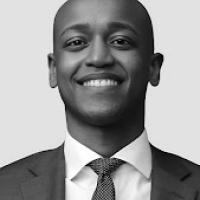

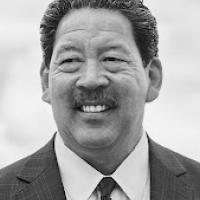
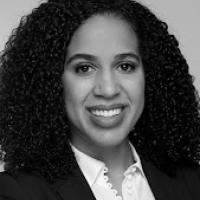
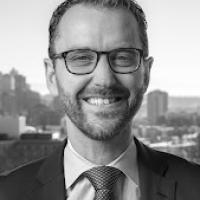

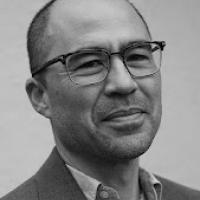
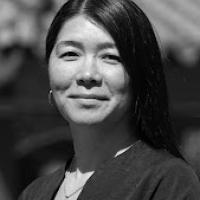

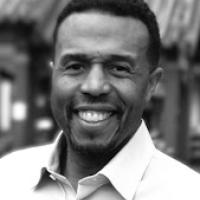
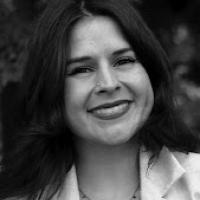
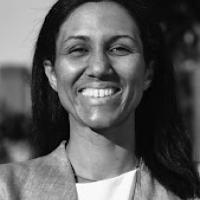
Balducci offers extensive, distinguished experience in making government work well for all of us across a range of issues, as well as a passion for solving transportation problems. Zahilay has an impressive track record of fighting for racial and social justice. He has supported efforts to make government more inclusive and a stronger tool for supporting upward mobility and opportunities for all. Read the full recommendations below to find the candidate who is best aligned with your values and priorities.